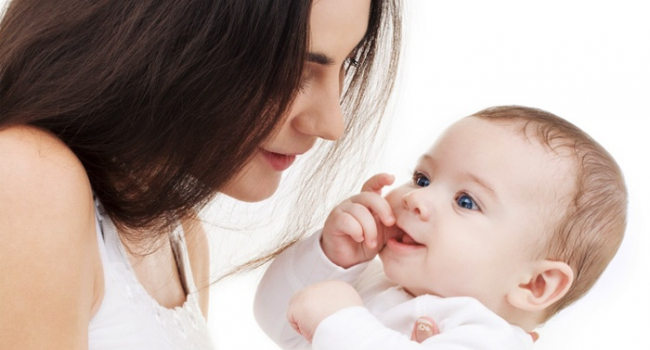- Latest news▼
-
15:32, April 26 ESCMID: New method of purifying the air with ultraviolet light could protect world from new pandemic

-
08:43, April 26 Enzymes that convert different blood groups into first group are discovered

-
19:41, April 25 Children’s Hospital Los Angeles and International Center of Professional Development Allergy/Immunology Conference

-
17:31, April 25 JAMA: patient grew long, curly eyelashes because of chemotherapy

-
11:08, April 25 Mpox epidemic declared in Republic of the Congo

-
08:31, April 25 OU: quitting smoking 4 times more likely to cure laryngeal cancer

-
01:20, April 25 Paralyzed man in China writes hieroglyphs using neural implants placed in his brain

-
15:11, April 24 Zombie deer disease possibly linked to hunters’ deaths

-
12:27, April 23 Appetite: Scientists found out the secret to the appeal of large portions of fast food

-
10:33, April 23 Scientists test new approach to fighting viruses

-
08:38, April 23 Ketamine may help with postpartum depression

-
22:12, April 22 Unhealthy amount of sugar found in baby food products of a well-known brand

-
19:41, April 22 Air pollution puts health of more than 1.6 billion workers globally at risk

-
17:25, April 22 Scientists found baked goods and lack of sleep to be more dangerous than alcohol

-
16:02, April 22 342 cases of measles recorded in Armenia so far in 2024

All materials
Breastfeeding may help protect infants from developing eczema

Children, who were exclusively breastfed for the first three months of their life may have a lower risk of developing eczema.
According to a new report published in the Journal of Allergy and Clinical Immunology, exclusively breastfeeding decreased the odds that a child had eczema by the time they were 6 years old compared to children who were not breastfed or were breastfed for less than three months.
“The evidence that being exclusively breastfed protects children from developing eczema later in life remains mixed,” says Katherine M. Balas, a clinical research assistant at Children’s National Health System in Washington, DC, and the study’s lead author. “Our research team is trying to help fill that data gap.”
Balas and her team looked at data from a federal feeding study conducted from 2005 to 2007, as well as a follow-up study from 2012. The feeding study tracked the diets of about 2,000 pregnant women from their third trimester and looked at feeding practices during the children’s first year of life. Researchers then followed up when 1,520 of the children were 6 years old.
Overall, at some point during the study, just over 20 percent of the children were diagnosed with eczema, which is an inflammatory disease that causes extremely itchy, cracked skin. Among children with a previous diagnosis, 58.6 percent had eczema at age 6. They found that kids with a family history of food allergies and those with a higher socioeconomic status had higher odds of having eczema.
“While exclusive breastfeeding may not prevent kids from getting eczema, it may protect them from experiencing extended flare-ups,” Balas said in a statement.
Dr. Karen A. Robbins, an allergist at Children’s National Health System and co-author of the research, told Healthline that parents should be aware that there are many factors related to eczema development and duration, and that breastfeeding exclusivity may be one protective factor that reduces the duration of eczema symptoms.
“We are not using the results of this study to change guidelines about breastfeeding or eczema management,” Robbins added.
“At this time we don’t definitively know that it is breastfeeding that is related to lower eczema rates,” she said. The data suggests that it is likely there is an association between the two, but they need more information about what drives this relationship, such as maternal diet during breastfeeding.
Source: Health Line
Follow NEWS.am Medicine on Facebook and Twitter
- Video
- Event calendar
- Children’s Hospital Los Angeles and International Center of Professional Development Allergy/Immunology Conference
- First Armenian-German Conference entitled “Heart Failure Spring School”
- Allogeneic bone marrow transplant in case of hematological malignancy performed in Armenia for first time
All materials
- Archive
- Most read
month
week
day
- Scientists found baked goods and lack of sleep to be more dangerous than alcohol 1041
- Next pandemic likely to be triggered by flu - scientists 1017
- 342 cases of measles recorded in Armenia so far in 2024 965
- Unhealthy amount of sugar found in baby food products of a well-known brand 831
- Air pollution puts health of more than 1.6 billion workers globally at risk 827
- Scientists develop new method to safely stimulate immune cells to fight cancer 825
- Ketamine may help with postpartum depression 824
- Cognitively stimulating jobs in midlife could lower dementia risk in old age, study finds 824
- Blood test can determine who is at risk of developing multiple sclerosis - scientists 822
- Appetite: Scientists found out the secret to the appeal of large portions of fast food 818
- Scientists test new approach to fighting viruses 799
- BrainStimulation: electrical brain stimulation alleviates anxiety and depression in the elderly 753
- Zombie deer disease possibly linked to hunters’ deaths 744
- Mpox epidemic declared in Republic of the Congo 552
- Paralyzed man in China writes hieroglyphs using neural implants placed in his brain 523
- Find us on Facebook
- Poll





